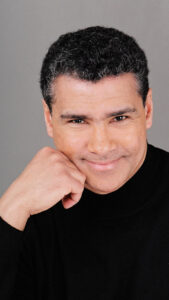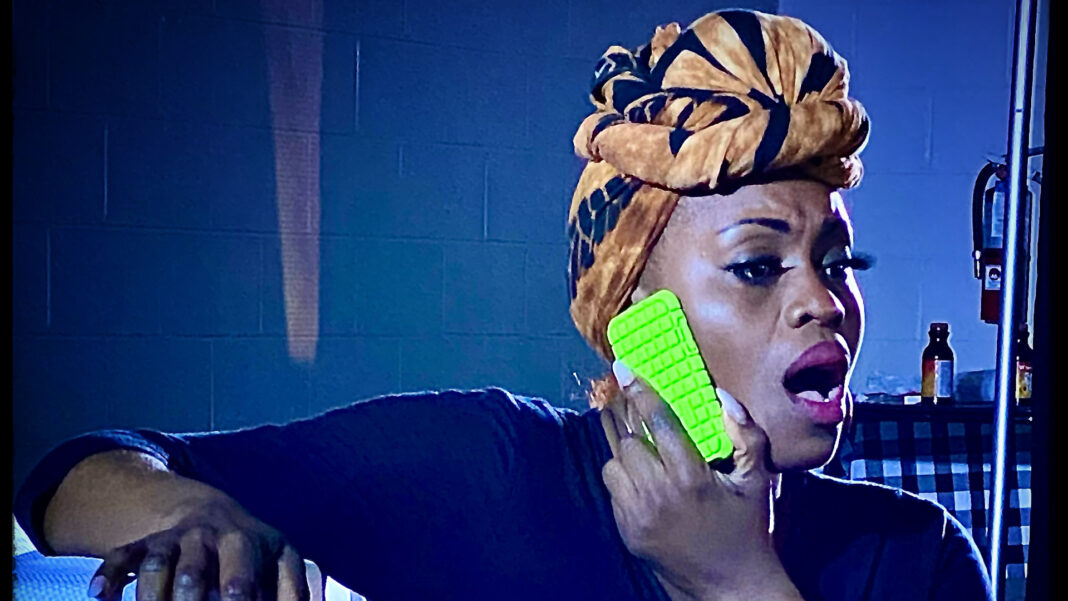Transitions: (Sung Stories); VANQUI; Portrait of a Nude Woman As Cleopatra. Do any of these operas sound familiar to you? Unfortunately they aren’t well-known even though one quite-distinguished composer, Leslie Burrs, wrote them. Awards and accolades can only take you so far. But Burrs has an idea why you probably haven’t seen or heard them
“I think it’s a tragic perspective that for all of the years of of opera existing and then in America and then for the Met[ropolitan Opera]. That this one person gets, as you say, maybe not the door down, but the reality is there was William Grant Still, there’s Leslie Adams.”
Burrs is alluding to the Metropolitan Opera finally performing the work of a Black composer this year with the staging of Terence Blanchard‘s Fire Shut Up in My Bones. But he doesn’t hold out much hope for change.

“There’s no reason for me to put faith in that. You know, I tend to be candid and so I’ll be candid here. It’s been my experience that they designate a Negro for the year. And what I mean by that is and so that you can then transfer into a decade, into a century. Then the blackness might only be the people on stage, but it’s George Gershwin that’s written it. You know what I’m saying? Now that all of that has advanced to a great extent. But this idea of will the door get open? It’s been my observation, my experience, that door get’s cracked open for somebody to get in. Then it is just quietly, if not outright, closed again until the next set of sociological circumstances insist that there’s a change.”
Burrs continues writing and composing and fighting for what’s right. His latest project is a perfect example. I Can’t Breathe had its world premiere at Marble City Opera in Knoxville, Tennessee in February of this year. The opera features a libretto by Brandon J. Gibson. It is a co-production with Opera Columbus, Cleveland Opera Theatre, and Pacific Opera Project. The latter company presents three performances this weekend at the El Portal Theatre in North Hollywood.
Speaking via Zoom last week with Burrs relayed how the opera came to be.
“Katherine Frady and Brandon Gibson with Marble City Opera were very concerned with what they were experiencing through this period of of police brutality and the deaths of African-Americans, particularly with George Floyd and Breonna Taylor and a few others. Katherine was asking, ‘What can what can we do about this? We can’t just sit here. And the only thing I have control over is the access to my opera company.’ They were trying to determine if there was a work that already existed that could address it. They could not find something that they’d be satisfied with. Katherine came up with the brilliant idea. ‘Brandon, could you write an opera about this?’ Brandon said, ‘Well, yes.’ He’s a writer, but he’d never written a libretto.
“Then it was time to find a composer. One of their board members was very familiar with my work as a composer. She suggested that maybe they should consider reaching out to me. And of course, I said yes.”
I Can’t Breathe depicts the lives of six characters; each of whom is given a generic name like the mother, the athlete, the thug, the scholar, the father and the lover. Each also experiences circumstances that will be familiar to anyone who has paid attention to well-known incidents of police violence against Black people. Burrs says there was absolutely a reason for this structure in the opera.
“There’s an effort that’s always made in society to lump us as African-Americans into just one category. And the way [Brandon] was doing it by putting this heading is there’s going to be so much depth to each of the characters that he wanted to make sure people understood how our everyday lives play themselves out each day.”
Musically that allowed Burrs to create themes for each of the six characters who appears on stage in solo scenes before the final sequence in I Can’t Breathe.

“At its bare minimum the opera can be presented with only one person per scene, which is even more challenging in its own right. So I wanted to make sure that the audience was not going to get lulled into thinking they would know what’s going to happen next because the same themes would carry through for all six scenes, it might even shut them down. I brought all the motifs together for the finale because each of the characters did not interact ever prior but, in effect, in the last section of the opera they get to know each other.”
Artists like H.E.R., Dax and Terence Blanchard have all responded to the concept of being unable to breathe since these incidents started getting national attention. Janelle Monae had the song Say Her Name. Burrs feels there is a place for I Can’t Breathe to offer something different in the way it addresses similar themes and issues.
“We want people to be able to be reflective of what they’re experiencing and to be open to having their perspectives expanded in a way that allows for a better community, a better society – a more humanistic, caring society. Sometimes, too, if you’re white, you’re looking at certain things and you don’t even know that you’re looking at something that is absolutely detrimental to anyone other than you. And that’s fine because you get to benefit from that. But if this helps to open your eyes to what is more just, what is more equal, then that is one of the things to take away from this experience.
“For the experience down the line? You hope that people will sit and say, ‘Oh my God, I couldn’t believe that the world was like that.’ That hasn’t happened in our 400 years or whatever years of history of America for the moment, because we’re seeing things that are so reminiscent of the period of slavery and frankly, that are utilized right to this moment. The opera, VANQUI, represents that. So here we are today from VANQUI about slavery and abolitionists to I Can’t Breathe and the same issues are at hand is troubling. So down the road as history goes on, we hope that people will sit and say, ‘I can’t believe society ever worked like that. But I’m glad this piece is here to remind us of what what life was like and what we should never aspire to because it will be so detrimental.’ Or they’ll sit there and say, ‘Oh my God, nothing has changed and what can I do to help make this change?’ That’s what I’d like to see happen with the experience of I Can’t Breathe.”
To see the full interview with Leslie Burrs, please go here.
Main photo: Jayme Alilaw in the world premiere production of I Can’t Breathe (Photo by Kyle Hislip/Courtesy Marble City Opera)










